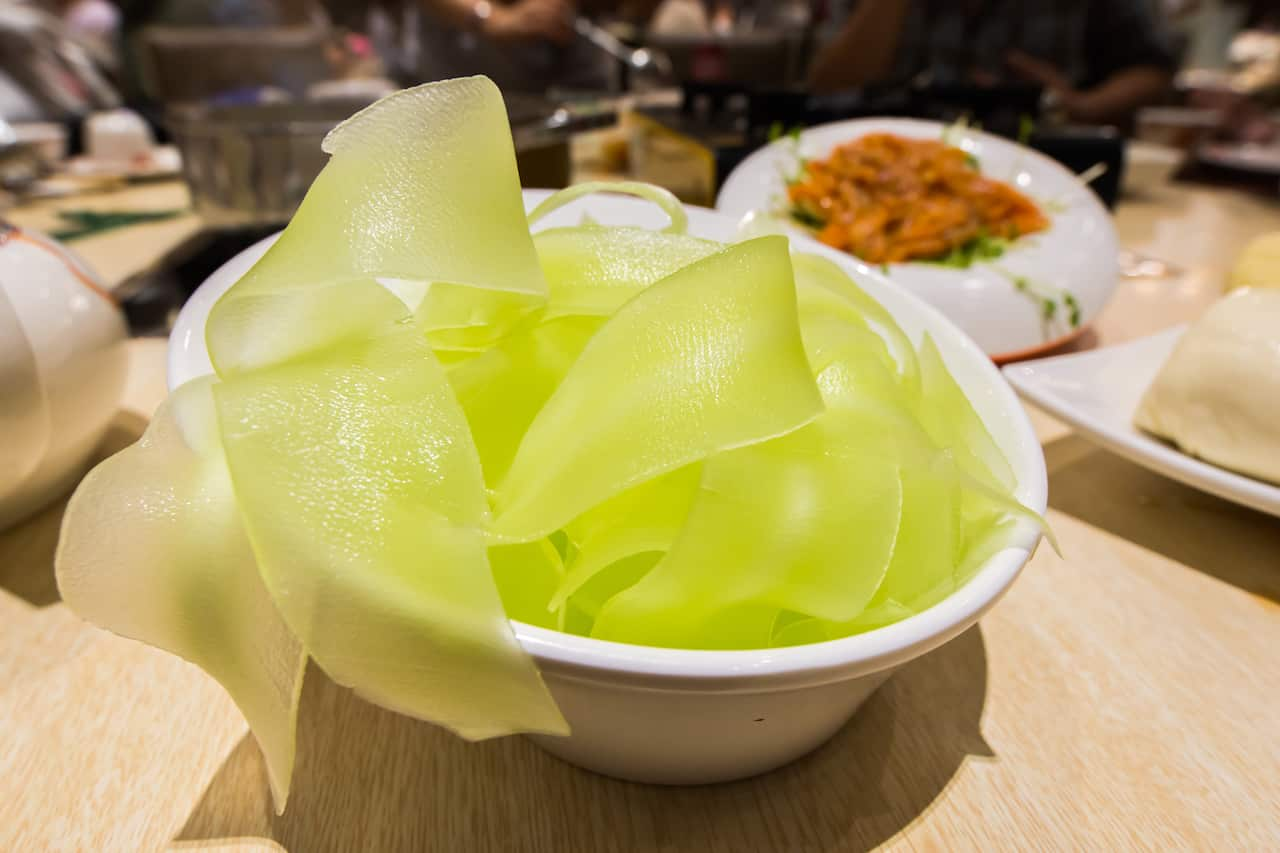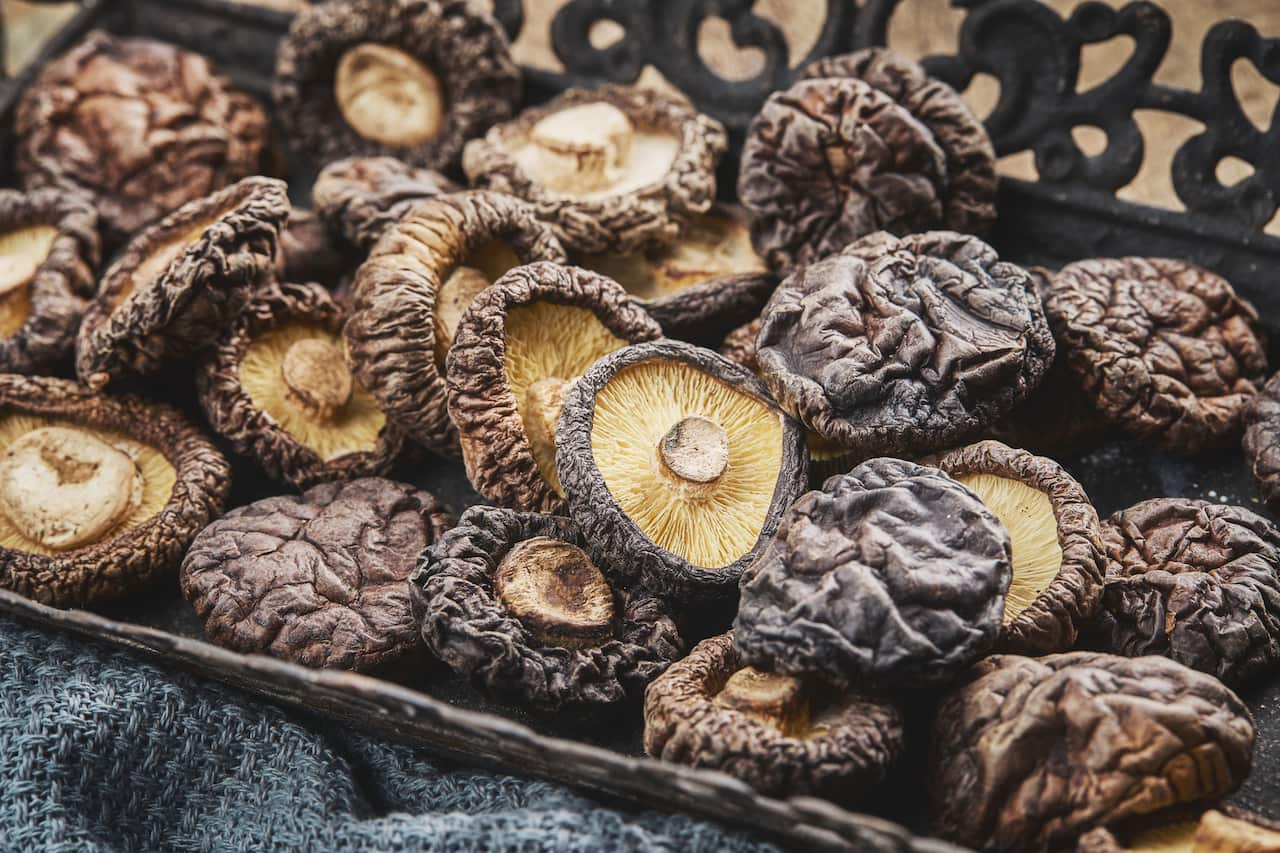

Explainer
7 diet and health food trends that will change the way you eat in 2019
From faux meat ready-meals to the new pegan diet, here's the health foods and diets that are set to shake up your kitchen in 2019.
Published
Updated
1. Celtuce

Move over kale: 2019 is all about celtuce - celery lettuce- also referred to as stem lettuce, Chinese lettuce, gingsun or wosun. The thick-stemmed vegetable is popular in both China and Taiwan.
According to the Culinary Trends 2019 report from research group Sterling-Rice Group, exotic varieties of lettuce like celtuce will increasingly show up on restaurant menus across the world this year, alongside other international vegetables like cassava and Japanese yam.
The Permaculture Research Institute states that celtuce is low in calories. It's also a great source of vitamin A and C, folate and minerals like manganese, calcium, copper, non-heme iron, magnesium, phosphorus, potassium, selenium, and zinc.
2. This year’s ‘best diet’
It’s now celebrated as 2019’s best diet for healthy eating, best heart-healthy diet, best plant-based diet, best diet for diabetes and easiest diet to follow.
Claiming a victory for a traditional, whole-food approach to eating, the Mediterranean diet was voted by the US News and World Report as the best overall diet for 2019.
According to the media outlet's global overview: “with its emphasis on fruits and vegetables, olive oil, fish and other healthy fare, the Mediterranean diet is eminently sensible. And experts’ assessments of it were resoundingly positive, giving this diet an edge over many competitors.”
The best diet of the year also succeeded against 40 eating plans to take out other first place category spots in the report. It’s now celebrated as 2019’s best diet for healthy eating, best heart-healthy diet, best plant-based diet, best diet for diabetes and easiest diet to follow.
3. The pegan diet
Although the Mediterranean diet remains unrivalled in popularity and health-based success, 2019 will see a growing acceptance of one major newcomer, the pegan diet.
This eating plan is the fusion of two existing diet trends – paleo and vegan.
The creator of the pagan diet, Dr Mark Hyman, advocates that this new style of eating helps to reduce inflammation in the body and balance blood sugar by focusing on the consumption of vegetables and fruit, with a small intake of meat, fish, nuts, legumes and seeds.
Research is yet to support the benefits of the pegan diet.
4. Faux meat ready-meals
Food scientist at Flannerys Organic & Wholefoods Market, Joshua Gaudry predicts that market for nutritious plant-based food alternatives will grow, as vegan cheese, faux meat products and vegan seafood items gain favour in 2019.
He adds the market for ready-to-eat plant-based meals is increasing, as busy people look for quick vegan meal options. That means vegans and flexitarians alike will get more choice in tasty faux meat ready-made meals, like vegan Massaman curries or ‘just add water’ vegan mac and cheese.
“Ready-meals are a great way for people that are looking to reduce meat from their diet to try a few different alternatives,” he says.
“Often it’s hard to think of recipes and ways to get the family (or partner) to not eat the same ‘meat and veg’ dinner, so having a readymade alternative that isn’t too far from what they are used to – is a great first step in reducing meat consumption.”
Ready-meals are a great way for people that are looking to reduce meat from their diet to try a few different alternatives.
Only one word of warning: consuming highly processed meals, even if they are plant-based, are not recommended for good health. Fresh is always best but if you have to go a ready-meal option, check the nutrition label on the back of the pack to ensure you get a salt-reduced, low-fat and low-sugar variety.
5. Sustainably-sourced kelp jerky
Gaudry foresees that in 2019 people will also increase their consumption of sustainable plant-based products from the sea, like kelp to reduce an overreliance on red meat and look after our oceans.
He says Tasmanian kelp products such as kelp seasoning and kelp salt are already proving highly popular in-store. “This wild Tasmanian kelp has the highest alginic acid, natural growth stimulants, vitamins and minerals of any brown kelp in the world due to the cold west coast sea temperatures,” says Gaudry.
“There are also kelp noodles from a couple different brands, which are used as a low calorie noddle for salads.”
Kelp jerky protein snacks are another buzz product. “Kelp jerky is still relatively new and many producers are still in the kick-start funding process to get into the main stream with their products.” But, he adds, once companies set up, the trend for sustainably sourced kelp snacks will be one to watch.
6. Medicinal mushrooms

The concept of using varieties of medicinal mushrooms – like chaga, reishi, cordyceps and shitake mushrooms – to boost our health and regulate our immunity is not new.
According to the International Society for Mushroom Science, medicinal mushrooms have been used as a dietary supplement or medicinal food in China for over 2,000 years. They’ve also been collected for the purpose of botanical medicine for many years in countries like Korea, Japan and eastern Russia.
They are getting more and more popular as awareness grows of their range of potential health benefits.
But, according to Gaudry, the use of medicinal mushrooms and their extractable ingredients are becoming increasingly on-trend in western cultures like Australia. He believes medicinal mushrooms will only heighten in popularity this year.
“They are getting more and more popular as awareness grows of their range of potential health benefits,” says Gaudry. “With the rise in awareness of gut health and the detrimental effect traditional antibiotics have on our microbiota, coupled with antibiotic resistance worsening, medicinal mushrooms seem to paint a promising future for helping build back our immune systems.”
However, research and evidence on their benefits is still very limited. “Although these have been used for hundreds of years its only now the scientific mechanism of action is starting to be understood, there is still so much we don’t fully understand.”
So caution should be exercised if you want to jump aboard this trend, and use all mushrooms as they were originally intended by nature – as a food source.
7. Hemp and cannabinoid products
The stigma around hemp is dissolving – the changes in legislation, being able to grow it as food worldwide. That’s opening a lot of doors.
Hemp Seeds, hemp oil and hemp products are currently all the rage in Australia, as they are rich in essential omega 3 (ALA) and omega 6 (LA) fatty acids. But in 2019, products including cannabidiol or CBD – a chemical compound in marijuana – are expected to also pick up steam.
“The stigma around hemp is dissolving – the changes in legislation, being able to grow it as food worldwide," says Gaudry. "That’s opening a lot of doors.”
Gaudry thinks there’ll be growing discussion about using CBD products, like CBD-infused coffees and CBD-chocolate and how they can be used to calm anxiety and reduce stress.
More research on the advantages of consuming hemp and CBD food products is yet to be done.
“We’ve seen demonstrations of the health benefits but more studies need to be done about the long-term health benefits.”






